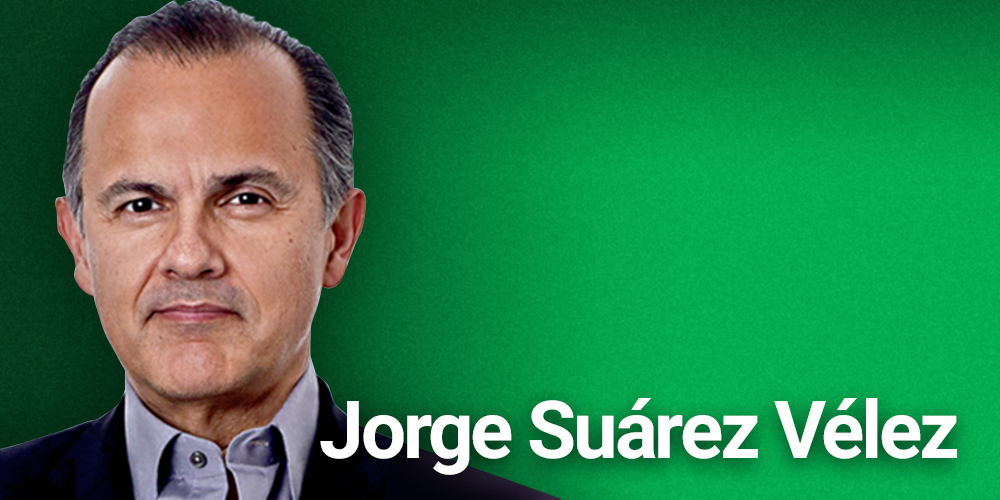 I am struck by the determined support that young American voters have given to populist Bernie Sanders who, in fact, looks a lot like Mexican President Andrés Manuel López Obrador (AMLO).
I am struck by the determined support that young American voters have given to populist Bernie Sanders who, in fact, looks a lot like Mexican President Andrés Manuel López Obrador (AMLO).
As New York Times columnist David Brooks wrote, Sanders leadership style demands for “ideological purity among your friends…and incessant hatred for your supposed foes” plus “that once an election has been won [one should] rule by majoritarian domination”.
Also, as the British weekly The Economist points out, “Mr. Sanders is so convinced that he is morally right, he has a dangerous tendency to put ends before means”. The magazine adds that Sanders is “sanctimonious, divisive… [someone] who blames a cabal of billionaires and businesses for everything that is wrong with the world”
Sanders long career in the US Senate lacked any achievement because of his inability to build alliances which also cost him a bitter defeat in this week’s Democratic Super Tuesday primary.
Sanders has dazzled young people fabricating an alternative reality, where universal healthcare and university education are free. He believes it is necessary to expand the state, to regulate more private investment and to force companies to give 20% of its equity to workers. Sanders is against free trade. He believes in banning nuclear energy and fracking, despite the fact that the latter made the US the largest producer of energy in the world and that it has allowed the US to reduce greenhouse gases more than in Europe, thanks to the massive use of natural gas.
Like AMLO’s Morena party has done in Mexico, Sanders puts the Scandinavian countries as examples of “socialist” economies where universal healthcare and education are guaranteed. But, he selectively ignores important facts. As Fareed Zakaria says, Sweden and Norway have more billionaires per capita than the US. Today, those countries are unquestionably capitalist.
One of the key principles of the Scandinavian model is its flexible labor market, where a worker can be fired without severance pay or litigation. There is no minimum wage as such. They believe in free trade, in a reduced regulatory burden and are focused on increasing their companies’ competitiveness. And yes, there is an extensive network of state support for public services like healthcare and education. But it is paid with high taxes.
In Denmark, the top income tax rate is 55.9% and applies to anyone earning 1.3 times the average national income (which in Mexico would be MXN 7,000 per month, the equivalent to US$ 350). The burden of tax collection falls on the less affluent population groups and the middle class, given that the average sales tax rate in northern Europe is 25%. One-fifth of total tax revenue comes from this source. According to the OECD, the richest 10% in the US paid 45% of the country’s total tax revenue in 2008, but only 26% in the Nordic countries.
Sanders insists on the growing polarization of income in the US. But recent studies show that if Social Security’s reserves are included, inequality in the US (high and undesirable, no doubt) has remained unchanged for 30 years.
Those of us who do not support the pipe dreams of politicians (like Mexico’s AMLO or Bernie Sanders) receive merciless attacks for our lack of compassion. It is believed that we do not want less inequality, or that we believe in the law of the jungle where only the fittest survive. Nothing less true. We long for the same, but we believe in math. We know that when the state expands or when new entitlements are created (many of them clientelistic in nature, but others with the right goals), someone will always pay the cost. We know that the state is a bad manager because politicians’ incentives do not align with efficiency goals. We know that each dollar spent by the state comes from a taxpayer who has earned it through his or her own efforts, or from a business whose capacity to generate wealth and jobs is curtailed.
It is politically profitable to offer a free heaven, promising that a third party will pay for it. But reality will always wake us up.
* Jorge Suárez-Vélez is an economic and political analyst He is the author of The Coming Downturn of the World Economy (Random House 2011). A Spanish version of this Op-Ed appeared first in Reforma’s newspaper print edition. Twitter: @jorgesuarezv


